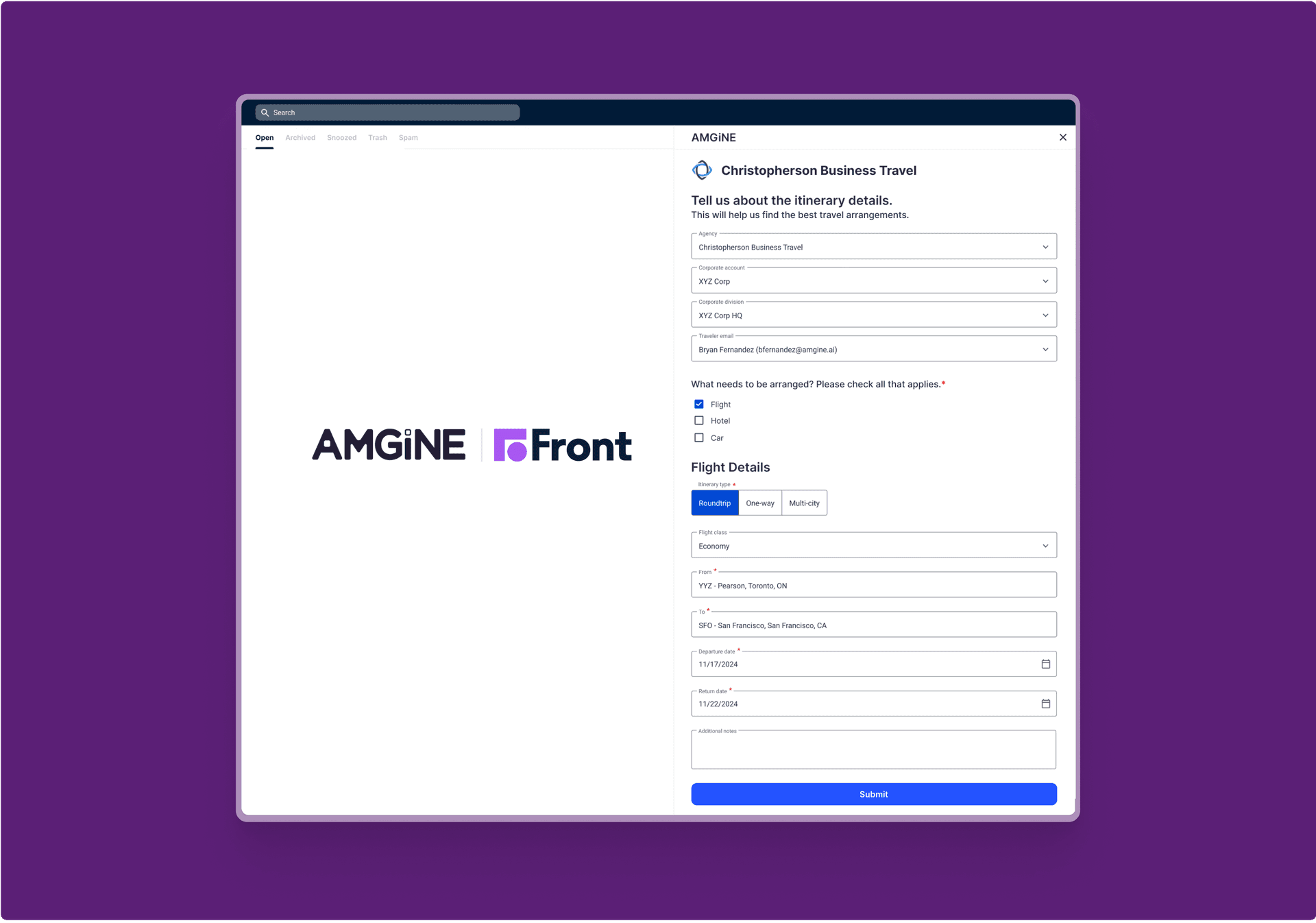As customer bases grow, so do the challenges of delivering fast, high-quality service. Shift scheduling becomes a puzzle. Ticket volumes surge. Disconnected tools make it harder to get a clear view of performance, and even harder to act on it. Meanwhile, customers expect faster answers, more autonomy, and a seamless experience across every interaction.
Scaling support is no longer about adding more people. It’s about building systems that can adapt, automate, and empower both your team and your customers. That’s where support operations engineers come in: the behind-the-scenes builders who create the infrastructure that makes scaling possible.
While support ops can include a range of roles — from analysts to process specialists — this piece focuses on the support ops engineer: a technical teammate embedded in the support org to build systems, automate workflows, and connect the tools that power scale.
I’ve been in this role at Front for a few months, and before that, I was the one juggling tickets for the last seven years while hacking together internal tools between shifts. That firsthand experience — balancing frontline urgency with backend systems — has shaped how I think about support ops today.
Here, I’ll share what a support ops engineer actually does, why this role becomes essential as your team scales, and how investing early in support ops can set you up for sustainable growth.
Why support ops engineers exist (and why your team probably needs one)
As support teams scale, they inevitably hit a point where systems and processes begin to strain. Workloads increase, SLAs slip, and familiar questions start cropping up. Team members begin to ask familiar, and increasingly urgent, questions about support gets done:
“Why is this still manual?”
“Didn’t we fix this already?”
“Isn’t there a better way to do this?”
Solutions to these issues rarely come from product engineering teams — not because they don’t care, but because their priorities lie in delivering customer-facing features. Internal tooling requests? They often fall to the bottom of the backlog.
That’s the gap a support ops engineer is designed to fill.
A support ops engineer’s role is to design, build, and maintain the systems that improve efficiency, from routing logic and internal dashboards to integrations with external tools that don’t natively connect.
Where a support ops engineer makes the largest impact
Roles vary across organizations and teams, but here’s a snapshot of what I focus on at Front:
🔁 Automating repetitive workflows
Repetitive, predictable workflows are ideal candidates for automation. For example, I implemented PagerDuty alerts for critical issues and a testing system to validate that those alerts remain functional: a small change that’s helped us avoid serious incidents.
We’ve also leveraged internal apps, macros, and LLM-powered workflows to pre-process and route conversations before a support rep ever steps in. By handling this work upfront, we reduce manual triage, speed up response times, and ensure the right person sees each conversation.
📊 Turning support data into insights
Support teams thrive on visibility, but vague or incomplete reports can hinder performance. One of the most impactful tools I’ve built is a dashboard that surfaces AXIS scores, a quality framework we use to assess conversations. It gives us a more nuanced view of performance and identifies clear areas for improvement.
🧠 Enhancing first-touch accuracy
Fast resolutions often begin with the first message. I’ve built forms and automations in our customer portal that prompt users to provide relevant details up front. Combined with AI tagging, we can now trigger tailored follow-up questions automatically based on the issue type, reducing back-and-forth and improving the customer experience.
🛠️ Creating tools that didn’t exist (but should)
A personal favorite: I developed a system to link Aha! feature requests directly to Front conversations using Application Objects (https://help.front.com/en/articles/2091). Now, when a user suggests a product enhancement, Aha! requests will be automatically connected to Front conversations just based on the presence of a link to that Aha! request in the conversation messages or comments — and we can easily follow up once it ships. No spreadsheets. No manual tracking.
The 4 traits all exceptional support ops engineers share
Support ops is not a traditional engineering or support role — it’s a hybrid, which makes it uniquely powerful. The best support ops pros can bridge technical systems and human workflows.
The best I think tend to have:
Experience in the queue – They know what slows reps down and what truly needs fixing. Real hands-on experience with your customers is invaluable; it gives you far more context about the most impactful items to address than most metrics can.
Technical fluency – Enough to build tools, debug logic, and automate with confidence: whether that’s using custom-built applications or hooking up integrations using no-code flows with Front App Requests, or automation platforms like Retool or Zapier.
Strong judgment – When everything feels urgent, they know what matters.
Customer empathy – They build with purpose: to reduce friction and create better experiences. The best support is no support needed. Knowing where you can make improvements in your product to give your customers what they need without contacting support is a huge win for both your customer and your team.
When is your team ready to invest in support ops?
Bringing support ops into your organization is when scaling stops feeling like chaos and starts feeling strategic. SLAs improve. Internal tools adapt to how your team actually works. Reps feel empowered, not overburdened. And most importantly, customers get faster, more accurate responses, without the friction of back-and-forth or inconsistent experiences.
Looking ahead, AI and automation will only amplify that impact. It’s not about replacing people, it’s about giving them the tools to move faster, solve problems earlier, and create a support experience that scales with your business. From smarter routing to more proactive self-serve options, support ops sits at the heart of that transformation.
If your team is nearing 15 reps, now’s the time to invest. Start with one engineer focused on tooling, automation, and integration, and you’ll quickly see how foundational this role can be.
Because when systems scale, your support can too — without sacrificing quality.
Written by Jason Dugdale
Originally Published: 22 May 2025











